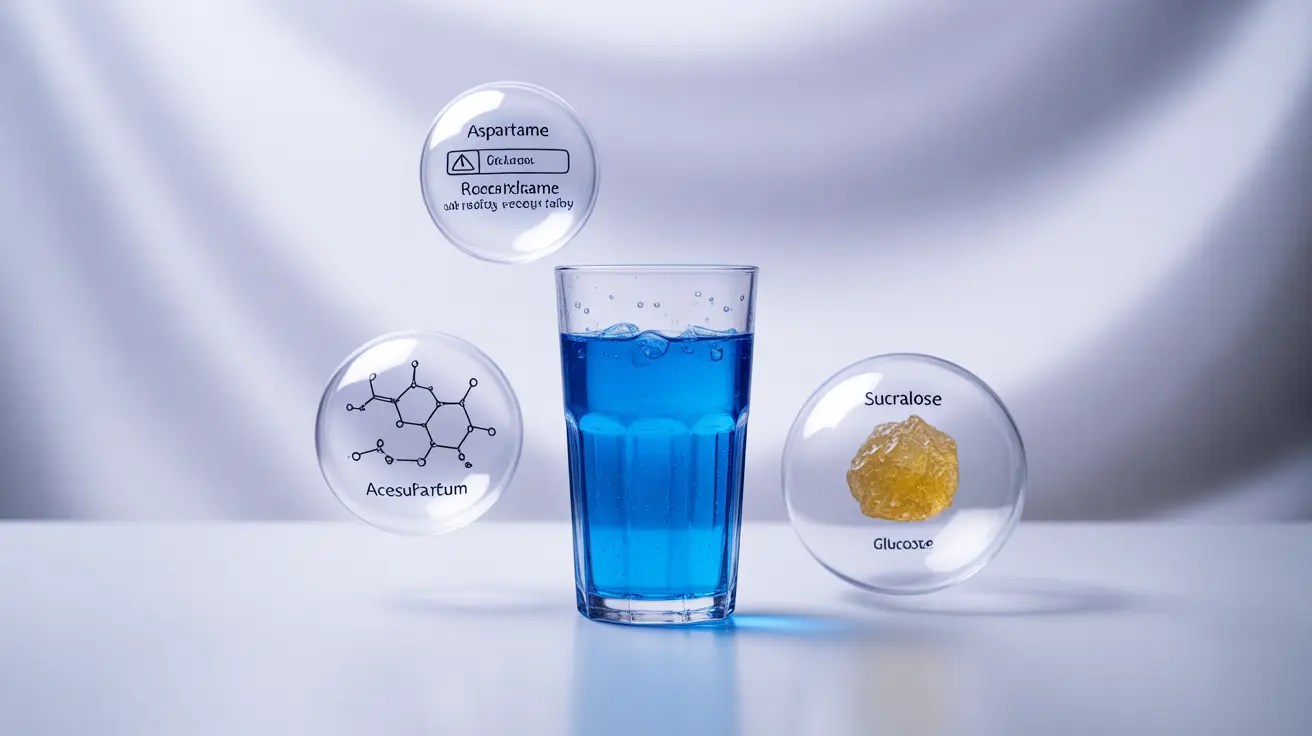Crystal Light, a popular brand of flavored drink mixes, has become a staple in many households as a low-calorie alternative to sugary beverages. With its wide variety of flavors and convenience, it's no wonder that many people turn to Crystal Light as a refreshing option. However, as with any product containing artificial sweeteners, questions arise about its potential health effects, particularly regarding blood sugar levels, insulin response, and overall metabolic health. In this article, we'll explore the science behind Crystal Light and its artificial sweeteners, addressing common concerns and providing evidence-based insights.
What's in Crystal Light?
Crystal Light products primarily use artificial sweeteners to achieve their sweet taste without adding calories. The most common sweeteners found in Crystal Light include:
- Aspartame
- Acesulfame potassium (Ace-K)
- Sucralose
These sweeteners are approved by regulatory agencies such as the FDA and are considered safe for consumption. However, understanding their potential effects on the body is crucial for making informed decisions about your diet.
Crystal Light and Blood Sugar Levels
One of the primary reasons people choose Crystal Light is its negligible impact on blood sugar levels. Unlike sugar-sweetened beverages, which can cause rapid spikes in blood glucose, artificial sweeteners in Crystal Light do not directly raise blood sugar in the short term. This characteristic makes it an attractive option for individuals managing diabetes or those looking to reduce their sugar intake.
The Cephalic Phase Insulin Response
While artificial sweeteners don't directly increase blood sugar, some research suggests they may trigger a small insulin response through a process called cephalic phase insulin release. This occurs when the body anticipates the arrival of glucose based on the sweet taste, even if no actual sugar is present. However, the extent of this effect with Crystal Light consumption is generally minimal and unlikely to significantly impact overall blood sugar control for most people.
Artificial Sweeteners and Gut Health
Recent studies have raised questions about the potential effects of artificial sweeteners on gut bacteria and, by extension, glucose metabolism. While most research has been conducted on animals or in small human trials, some findings suggest that certain artificial sweeteners might alter the gut microbiome composition. These changes could theoretically influence how the body processes glucose, but more extensive human studies are needed to confirm these effects and their relevance to products like Crystal Light.
Crystal Light Flavors and Health Considerations
Crystal Light offers a wide range of flavors, from classic options like lemonade to more exotic blends. When choosing Crystal Light flavors, consider the following:
- Opt for varieties without added caffeine if you're sensitive to its effects
- Check for any additional ingredients that might not agree with your dietary needs
- Be mindful of portion sizes, as overconsumption of any artificially sweetened product is not recommended
For those with specific health concerns or digestive sensitivities, it may be worth experimenting with different Crystal Light flavors to find the ones that best suit your individual needs.
Comparing Artificial Sweeteners to Natural Sugars
When considering the health implications of Crystal Light versus naturally sweetened beverages, it's important to weigh the pros and cons. While artificial sweeteners in Crystal Light don't contribute calories or directly raise blood sugar, natural sugars provide energy and can be part of a balanced diet when consumed in moderation. The choice between the two often comes down to individual health goals, preferences, and any existing medical conditions.
Frequently Asked Questions
Does Crystal Light raise blood sugar levels or affect insulin response?
Crystal Light does not directly raise blood sugar levels due to its use of artificial sweeteners. While there may be a minimal insulin response due to the cephalic phase insulin release, this effect is generally not significant for most people. However, individual responses can vary, and those with diabetes should monitor their blood sugar levels when introducing any new food or drink.
Can drinking Crystal Light cause gut health issues or change your microbiome?
Some studies suggest that artificial sweeteners may alter gut bacteria composition, potentially affecting glucose metabolism. However, research specifically on Crystal Light's impact on gut health is limited. More comprehensive human studies are needed to determine the long-term effects of regular consumption on the microbiome.
Are artificial sweeteners like aspartame in Crystal Light linked to diabetes or weight gain?
Current scientific evidence does not conclusively link artificial sweeteners in products like Crystal Light to an increased risk of diabetes or weight gain. Some observational studies have shown associations, but causation has not been established. Many factors contribute to weight management and diabetes risk, including overall diet, physical activity, and genetics.
What are the safest Crystal Light flavors or alternatives for people with digestive sensitivities?
For those with digestive sensitivities, opting for simpler Crystal Light flavors with fewer additives may be beneficial. Alternatives include naturally flavored water, herbal teas, or making your own fruit-infused water. Always consult with a healthcare provider if you have specific concerns about how Crystal Light or other artificially sweetened beverages may affect your digestive health.
How do artificial sweeteners in Crystal Light compare to natural sugars in terms of health risks?
Artificial sweeteners in Crystal Light do not contribute calories or directly raise blood sugar, which can be advantageous for weight management and blood glucose control. Natural sugars, while providing energy, can lead to blood sugar spikes and contribute to calorie intake. Both have their place in a balanced diet, and the choice depends on individual health goals and needs. Moderation is key with both artificial sweeteners and natural sugars.
In conclusion, while Crystal Light and its artificial sweeteners are generally considered safe for consumption, individual responses may vary. As with any dietary choice, it's important to consider your personal health goals, listen to your body, and consult with a healthcare professional if you have specific concerns. Moderation and balance remain key principles in maintaining overall health and well-being.




